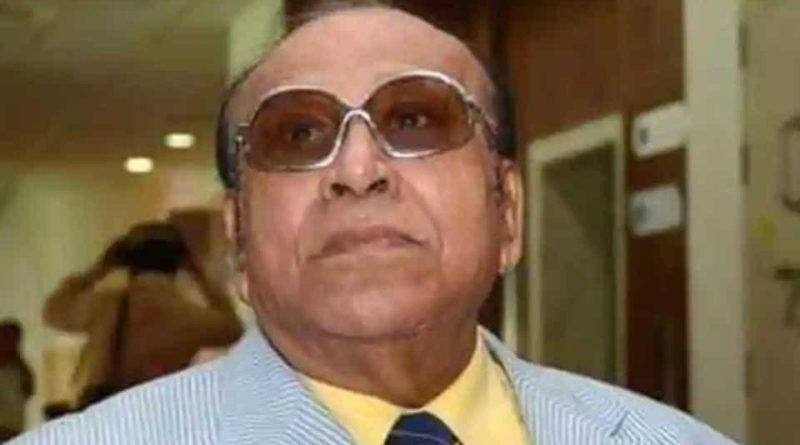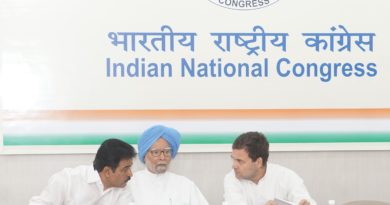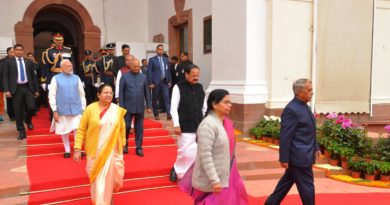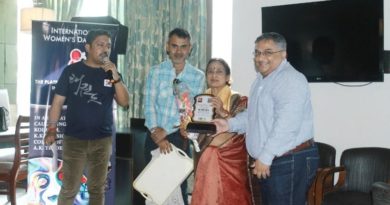SOCCER legend PK Banerjee is no more
Pradip Kumar Banerjee, legendry footballer turned coach, has passed away in Kolkata ending an illustrious carrer. He was suffering from chest infection. He is survived by Paula and Purna, daughters, who are noted academicians besides dozens of admirers. His younger brother is Prasun Banerjee, Member of Parliament, who played for India and an Arjuna awardee. Pradip Kumar Banerjee had played for India in 1956 Melbourne and 1960 Rome Olympic Games. Besides, he helped India bag gold medal in football in the 1962 Asian Games held at Jakarta. He was born In Jalpaiguri on June 23,1936, and breathed his last in a hospital on 20 March 2020 after suffering from age-related issues, He reportedly was a patient of Parkinson’s disease, dementia and heart problems. He first came into limelight when at the age of 15, had the opportunity to represent Bihar in Santosh Trophy. In 1954, he relocated to Kolkata and joined Aryan FC, then a famed Kolkata based football club. He later joined the Eastern Railway FC. He rebuilt the Eastern Railway FC, and helped it emerge as a major football team. The Eastern Railway’s team won the famed Calcutta Football League title in 1958 for the first time.P.K. as he was known among the soccer playing community, had represented India in 36 official matches, captaining in 6 of them, and scored 19 official goals for the country. He was the first footballer who was honoured with Arjuna Award, when the awards were instituted in 1961. He was awarded the prestigious Padma Shree in 1990 and was named Indian Footballer of the 20th century by IFFHS. In 2004, he was awarded the FIFA Order of Merit, the highest honour awarded by FIFA.P K. He guided both iconic East Bengal and then Mohun Bagan Athletic Club. He became the national coach in 1972 starting with the qualifying matches of the 1972 Munich Olympics. He also coached the Indian Football Team till 1986. He joined the Tata Football Academy at Jamshedpur and served as its Technical Director from 1991 to 1997. He was awarded the player of the Millennium in 2005 by FIFA. He had also won the International Fair Play Award from the Olympic Committee. He was also the technical director of the Indian Football team. He also represented India in the 1958 Asian Games in Tokyo, the 1962 Asian Games in Jakarta, where India clinched the gold medal in football and then the 1966 Asian Games in Bangkok. He was part of the national team that played at the 1956 Summer Olympics in Melbourne. He captained India at the 1960 Summer Olympics in Rome, where he scored an equalizer against France in a 1-1 draw. He represented India thrice at the Merdeka Cup in Kuala Lumpur, where India won a silver medal in 1959 and 1964 and a bronze medal in 1965. As Amitabha Das Sharma says’’ What made P.K. the legend was his larger than life status both as a footballer and then as a coach. For many of his peers and players of later generation, P.K. belonged to that realm of excellence which very few footballers in the country could match. At a time when football was mostly played in the five-forward system, P.K. excelled both as a right-winger and a centre forward showing a rare disposition of speed, skill and power. This could be gauged from the fact that he scored 65 goals in 84 matches for the national team’’. P.K Banerjee’s contribution to Indian football was duly recognized by the world governing body FIFA that awarded him the Centennial Order of Merit in 2004.(edited by @ chakravartypk)




